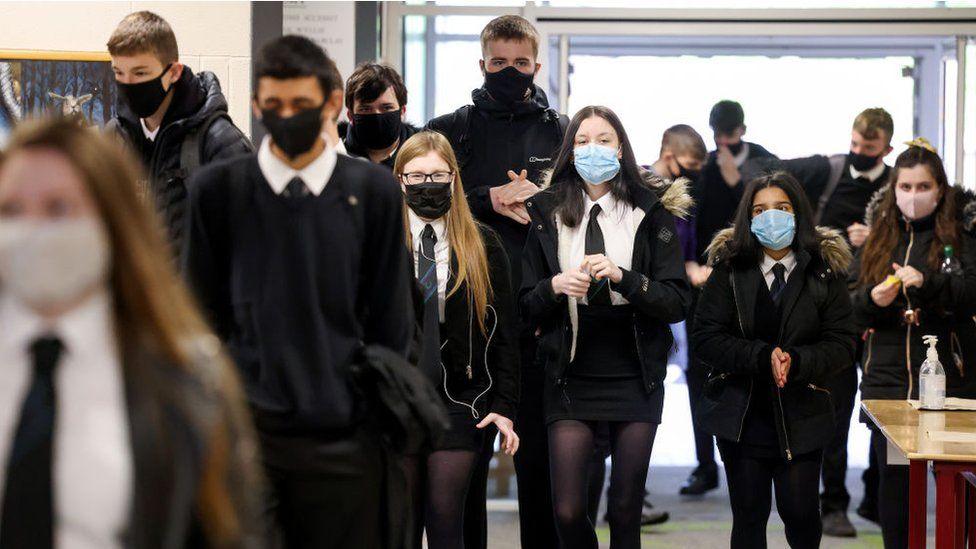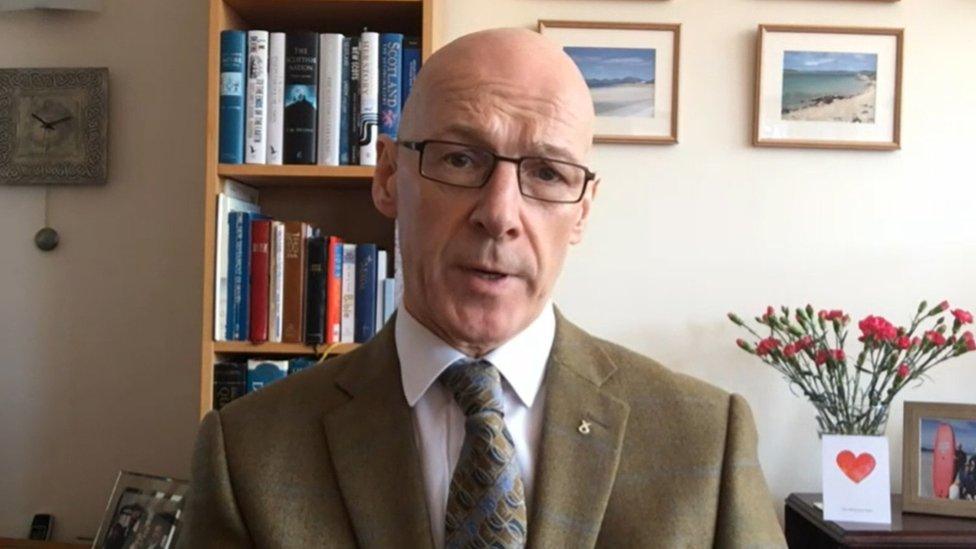Teachers' union says return of pupils 'politically motivated'
- Published
EIS assistant secretary Andrea Bradley said the workload on teachers was "off the scale"
Sending secondary pupils back to school in Scotland was a "political decision" and not for the benefit of young people, a teachers' union has claimed.
The Educational Institute of Scotland (EIS) said the Scottish government wanted a "good news" story while teachers were exhausted.
First Minister Nicola Sturgeon announced that all secondary pupils would have time in school from Monday.
She said that even a small amount of time in class would benefit them.
EIS assistant secretary Andrea Bradley told BBC Scotland's Sunday Show that the workload on teachers was "already off the scale".
She said: "The decision seemed to be a political one rather than one that was based on sound educational principle.
"Certainly it wasn't one that has taken account of the very real circumstances in which teachers are working - under quite significant stress and pressure over the last six months."
S1-S3 pupils are the final group to return to school part-time after lockdown.
Primaries one to three returned full time on 22 February, along with older pupils in S4 to S6 who had to complete work for qualifications.
Primaries four to seven make a full-time return from Monday.

S1-S3 pupils are the final group to return to school part-time
Because schools currently have to stick to 2m distancing, capacity is greatly reduced for the rest of the pupils.
Ms Bradley added: "The government have been keen to get all young people back to school, there has been strong lobbying for that from some quarters.
"Teachers really are struggling with the workload surrounding all of this.
She added: "We have to have cognisance of the context in which the decision was announced, it took place before the parliamentary evidence giving session.
"Our sense was the government were looking for a good news story that week."
The Scottish government previously said that pupils in S1 to S3 would not return to school until April, but in an announcement on 2 March Nicola Sturgeon brought the date forward.
She said the safety of staff and pupils was a "key priority", and that two-metre social distancing would continue in secondary schools until Easter.

Education Secretary John Swinney said pupils have had a "hard time"
Education Secretary John Swinney told The Sunday Show that the Scottish government's concern was for children's "wellbeing".
He said: "All the mitigations have got to be in place to keep everybody safe, whether they are members of staff or pupils.
"We were concerned about wellbeing of S1 to 3 pupils, who might feel excluded from the return to school if we didn't give them some opportunity for face to face learning before the Easter holidays.
"That was the one and only motivation that the government had."
Mr Swinney said pupils have had a "hard time" as they have missed out on face-to-face with friends and teachers.
'Erosion of trust'
He said many young people have expressed concerns about the effect this has had on their own health and wellbeing.
He added: "The needs of young people are absolutely central to my consideration of all of these issues."
The Scottish Conservatives' Jamie Greene said the EIS comments indicated an "erosion of trust" from teachers in the Scottish government.
He said: "It is startling to hear a senior teaching union official effectively accuse Nicola Sturgeon of using Scotland's school pupils for political distraction.
"It is not only the teaching profession that has lost faith in this tired, cynical and deceitful government."

